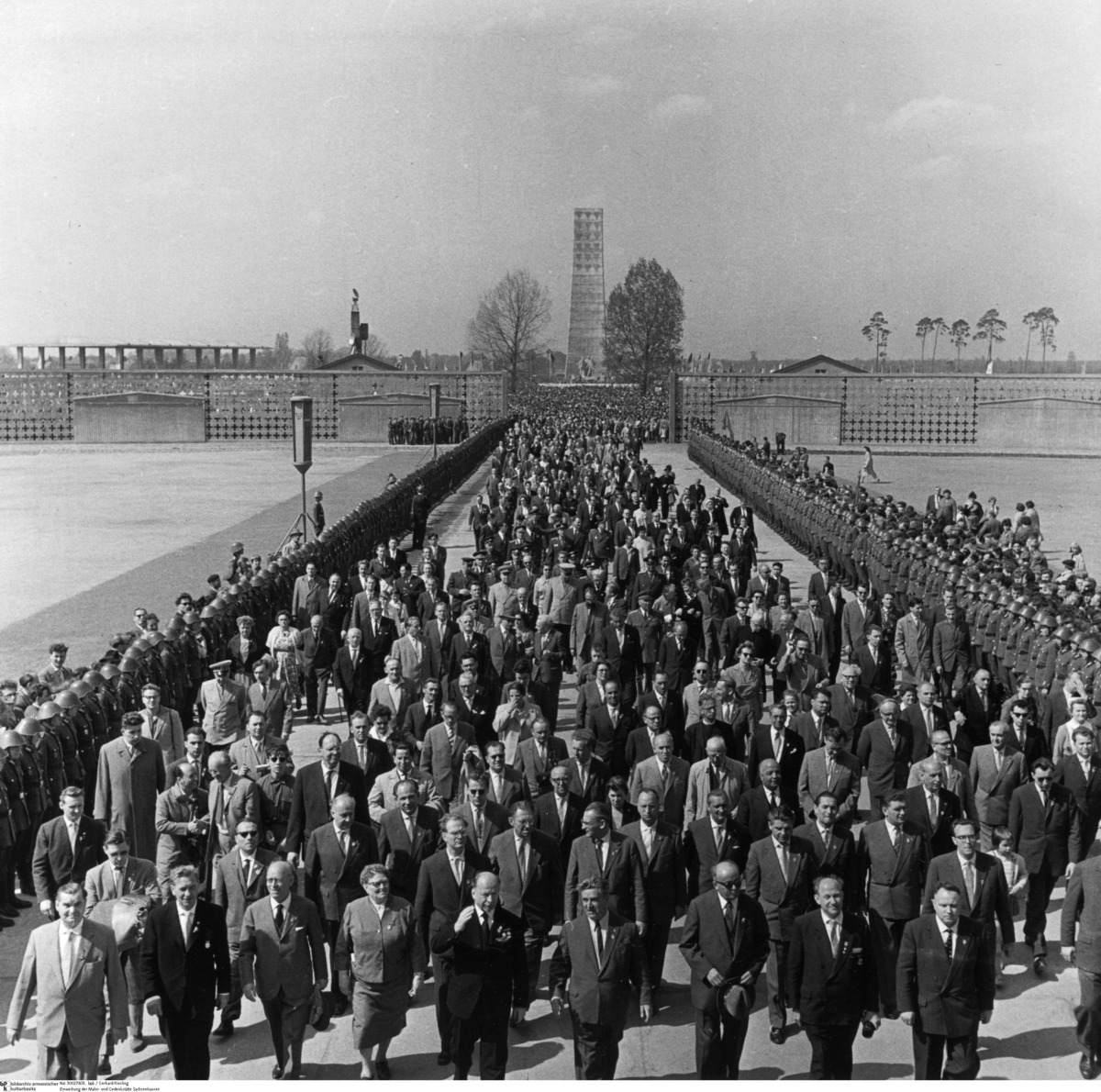Abstract
Dedicated in April 1961, the memorial at the Sachsenhausen
concentration camp was the third “National Memorial” opened in the GDR;
it was preceded by the Buchenwald (1958) and Ravensbrück (1959)
memorials. These three memorials, all of which had been designed by
architects Ludwig Deiters, Horst Kutzat, and Kurt Tausendschön, were
overseen by the Ministry of Culture. According to a GDR statute, “the
struggle of the German working class” and “the role of the Communist
Party as the strongest and leading force in the fight against the Nazi
regime” were to stand at the center of the historical narrative advanced
by these memorials; at the same time, the supposed “revival of fascism”
in West Germany and the GDR’s “historic role” were to be highlighted as
well. This photograph shows honorary guests being led by Walter Ulbricht
(front row, 5th from left) after the opening ceremony.
